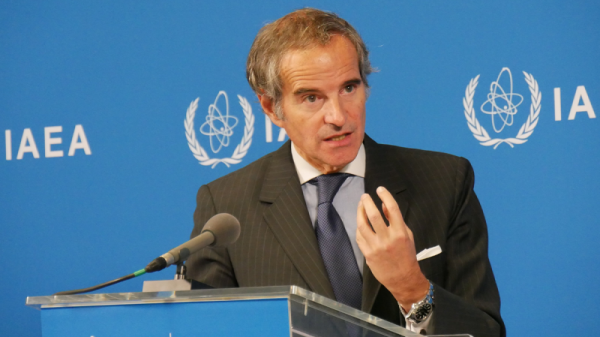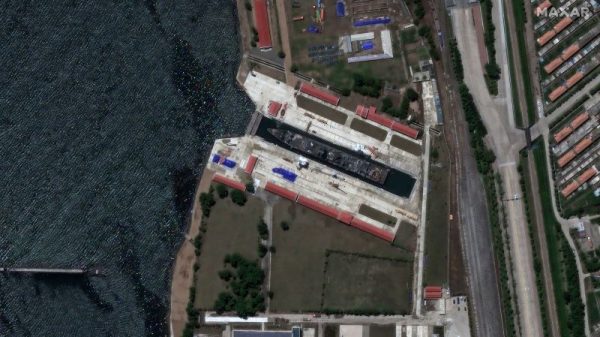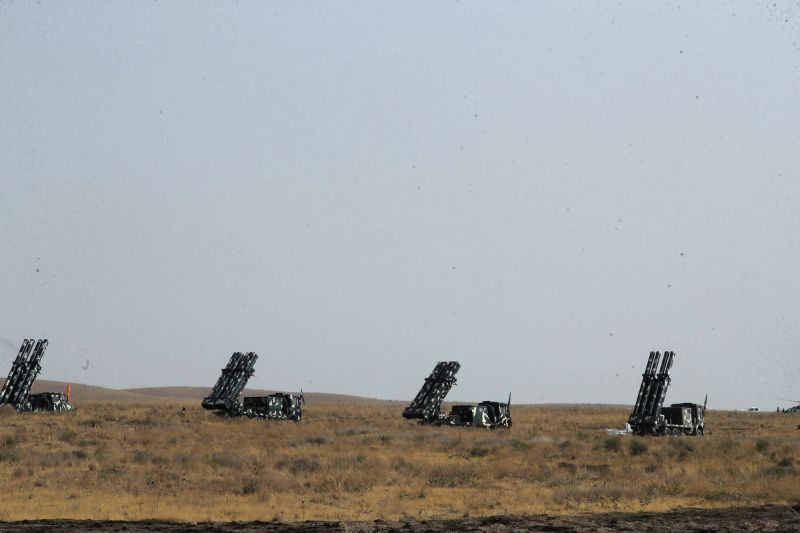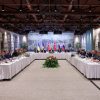Pakistan on Tuesday strongly condemned an Iranian airstrike inside its borders that killed two children, calling it an “unprovoked violation of its airspace” and warning of retaliation.
Iran said it used “precision missile and drone strikes,” to destroy two strongholds of the Sunni militant group Jaish al-Adl, known in Iran as Jaish al-Dhulm, in the Koh-e-Sabz area of Pakistan’s southwest Balochistan province, according to Iran’s state-aligned Tasnim news agency.
The attack comes after Iran launched missiles in northern Iraq and Syria Monday, in the latest escalation of hostilities in the Middle East where Israel’s ongoing war in Gaza risks spiraling into a wider regional conflict.
Pakistan’s Foreign Ministry said the attack on its territory killed “two innocent children” and warned Iran of “serious consequences.”
It described the airstrike as an “unprovoked violation of its airspace by Iran … inside Pakistani territory.”
“It is even more concerning that this illegal act has taken place despite the existence of several channels of communication between Pakistan and Iran,” the ministry said.
Following the strike, nuclear-armed Pakistan lodged a “strong protest” with a senior official in Iran’s Foreign Ministry in the Iranian capital Tehran and called on the Iranian charge d’affairs, saying the “responsibility for the consequences will lie squarely with Iran.”
The Jaish al-Adl militant group late Tuesday said Iran’s Revolutionary Guards had used six attack drones and a number of rockets to destroy two houses where the children and wives of its fighters lived.
Khetran also said a mosque near the homes was targeted and hit in the strikes.
Koh-e-Sabz — about 50 kilometers (31 miles) from Pakistan’s border with Iran — is known to be the home of Jaish-ul-Adl’s former second-in-command Mullah Hashim, who was killed in clashes with Iranian forces in Sarawan, an Iranian region adjacent to Panjgur, in 2018.
Last month, Iran accused Jaish al-Adl militants of storming a police station in the Iranian province of Sistan and Baluchistan, which resulted in the deaths of 11 Iranian police officers, according to Tasnim.
Jaish al-Adl, or Army of Justice, is a separatist militant group that operates on both sides of the border and has previously claimed responsibility for attacks against Iranian targets. Its stated goal is the independence of Iran’s Sistan and Baluchistan province.
The strikes in Pakistan came a day after Iran’s Revolutionary Guards launched ballistic missiles, targeting what it claimed was a spy base for Israel’s intelligence agency Mossad in Erbil, northern Iraq, and at “anti-Iran terror groups” in Syria.
Iran said the strikes in Iraq were in response to what it said were Israeli attacks that killed Iranian Revolutionary Guard commanders, and claimed targets in Syria were involved in the recent dual bombings in the city of Kerman during a memorial for the slain Quds Force Commander Qasem Soleimani that left scores dead and wounded.
It defended the strikes as a “precise and targeted” operation to deter security threats, Iranian foreign ministry spokesperson Nasser Kanaani said in a statement on Tuesday.
Iran’s attacks will further raise fears that Israel’s war in Gaza could widen into a full-scale war in the Middle East with grave humanitarian, political and economic consequences.
The attacks in Iraq and Syria were condemned by the United States as “reckless” and imprecise, while the United Nations said, “security concerns must be addressed through dialogue, not strikes.”
Iraq said it submitted a complaint to the UN Security Council and the UN on Tuesday. Iraqi Foreign Minister Fuad Hussein said there are no Mossad-affiliated centers operating in Erbil in the semi-autonomous Kurdistan region.
Concerns of an escalating war
Israel’s relentless bombing of Gaza in response to Hamas’ October 7 terror attacks has killed more than 24,000 people, according to the Hamas-run Ministry of Health, and wrought widespread devastation, as civilians live with the threat of imminent death – either by an airstrike, starvation or disease.
The conflict has escalated hostilities across the region, with Iran’s allies and proxies – the so-called axis of resistance – launching attacks on Israeli forces and its allies.
A few hours later, the Houthis launched a missile into international shipping lanes in the southern Red Sea, hitting the M/V Zografia, a Maltese flagged bulk carrier, the official said.
The strikes are at least the third round of attacks the US military has launched against the Houthis’ infrastructure since last Thursday, when American and British conducted a joint operation that targeted command and control nodes and weapons depots used by the Houthis to launch missile and drone attacks on commercial shipping in the Red Sea.
US troops in Iraq and Syria have also repeatedly come under rocket and drone attacks from Tehran’s proxies. Last week, the US carried out a strike in Baghdad that killed a leader from an Iran-backed proxy group that Washington blamed for attacks against US personnel in the region.
And fighting has intensified between Israel and the powerful Iran-backed group Hezbollah, across the Lebanon border. On Sunday, Hezbollah chief Hassan Nasrallah vowed to press on with confrontations with Israeli forces on the Lebanon border until the end of the Israeli offensive in Gaza.
This is a developing story and will be updated.






































